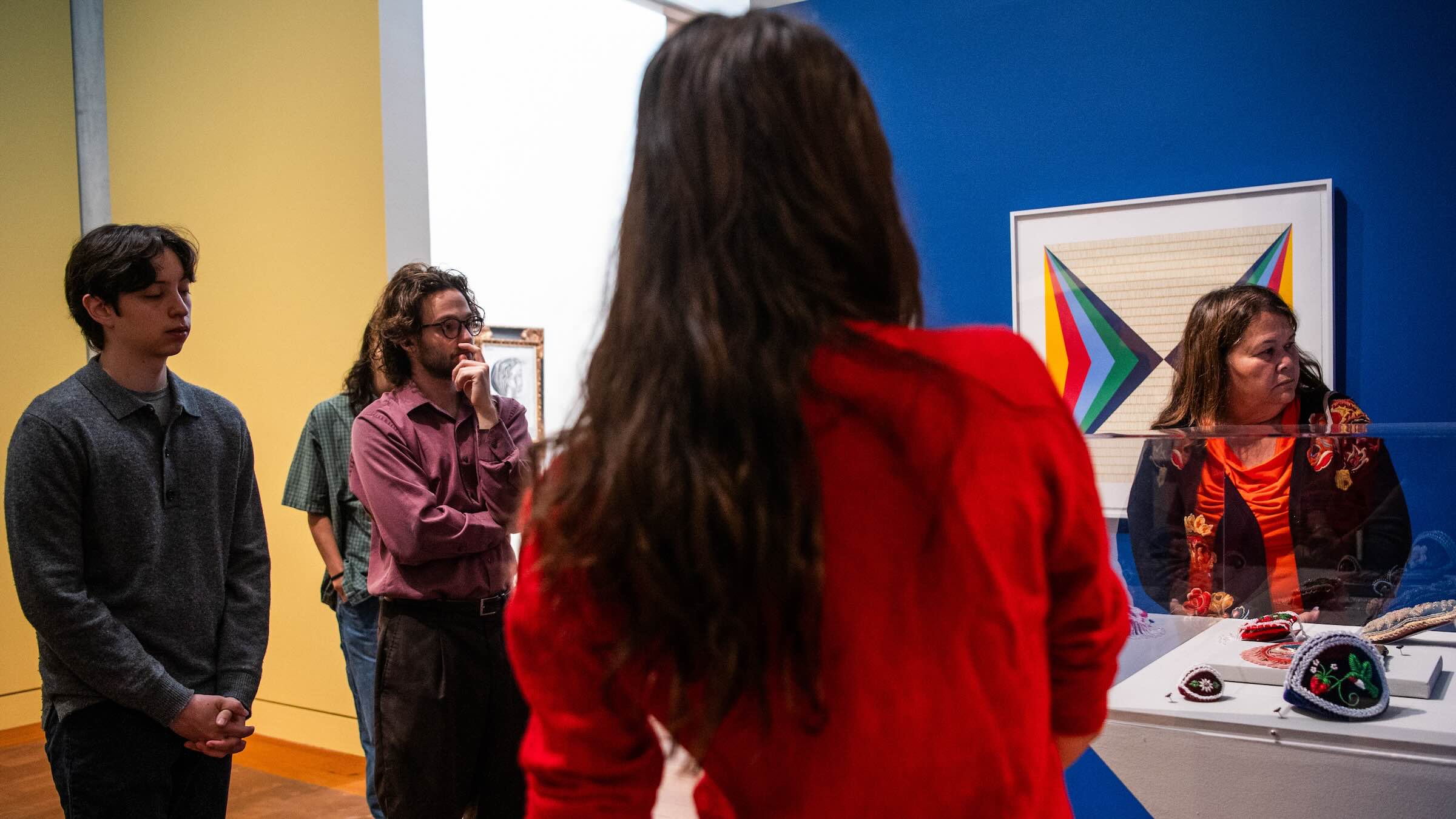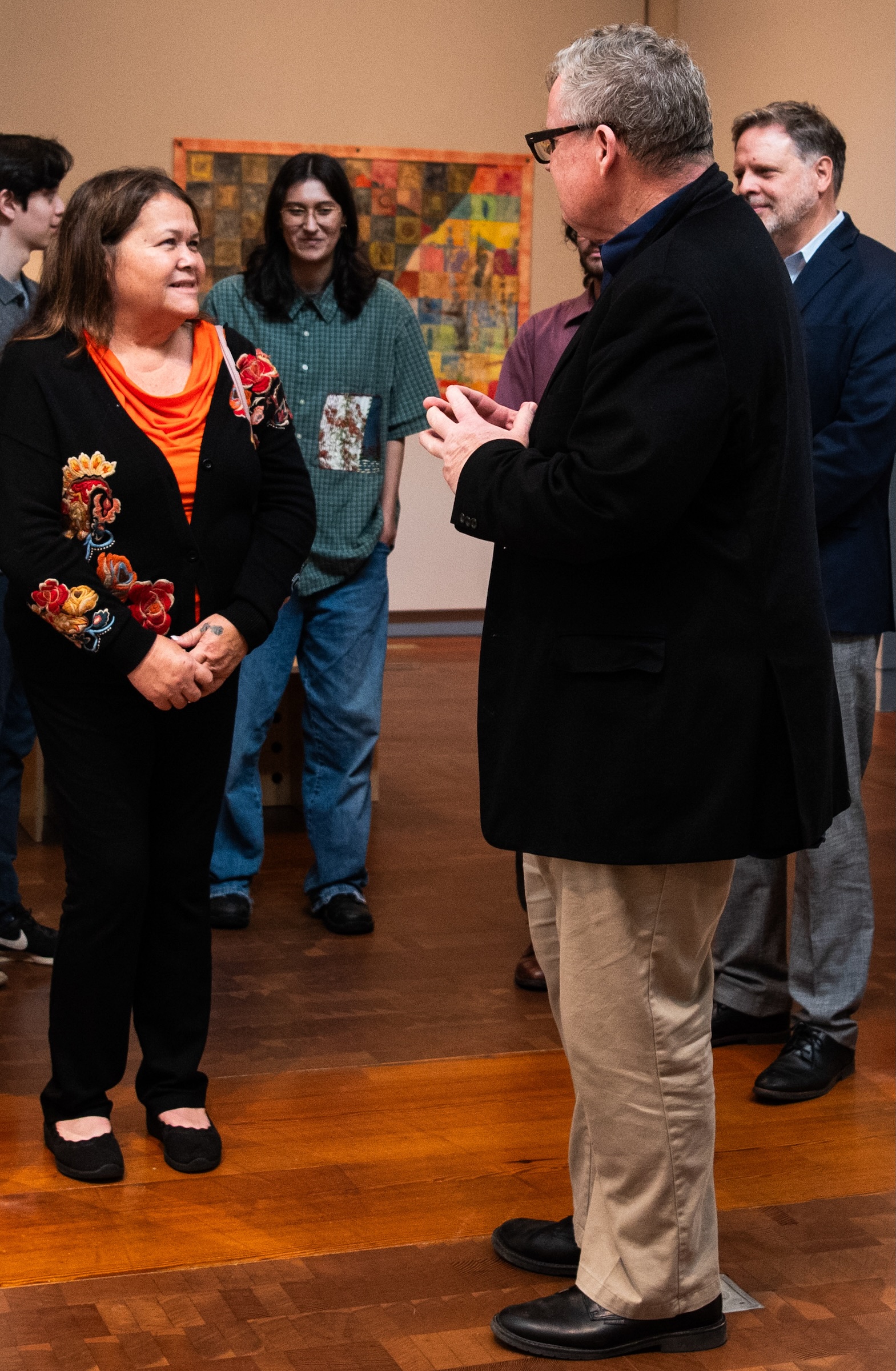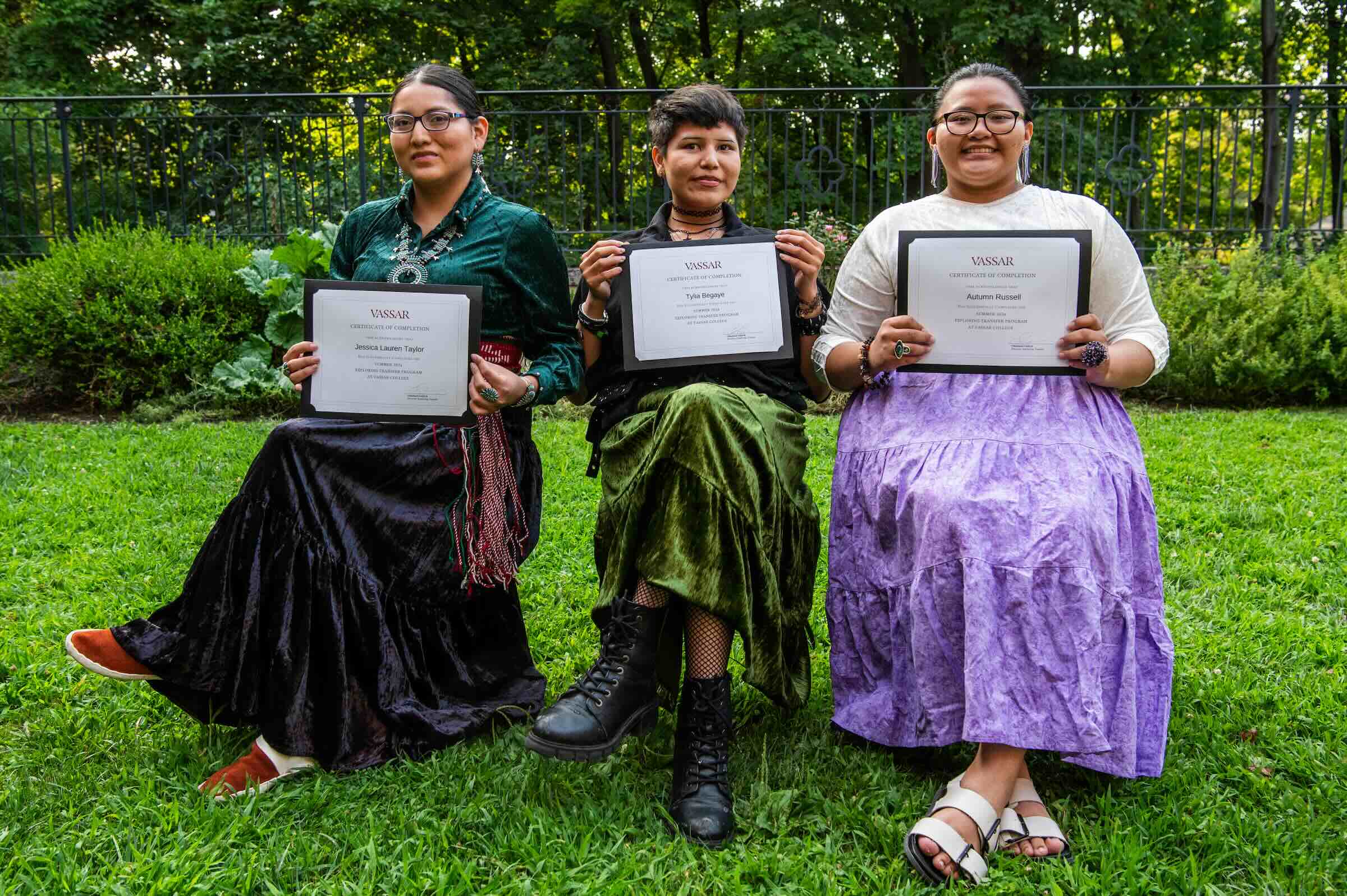Countering Injustice
Over the past decade, Vassar students, faculty and administrators have been engaged in an ongoing effort to acknowledge the displacement of Native peoples from the land where the campus has been built and to repair relationships with those Native nations today. To do that work, the College created a Native American Advisory Committee, which is charged with developing policies and programs that encourage and support dialogue with Native Americans. At the same time, the College continues to grow its Native American Studies Correlate in the American Studies Program.

One of the key components of the effort to confront past injustices is contained in the College’s Land Acknowledgement, which declares that Vassar sits on land improperly seized from the Stockbridge-Munsee tribe of the Mohican Nation, as well as the Delaware Nation and Delaware Tribe. The Land Acknowledgement concludes by declaring that in addition to simply stating that the College has benefited from this injustice, such a declaration “is hollow without our efforts to counter the effects of structures that have long enabled—and that still perpetuate—injustice against Indigenous Americans. To that end, we commit to build and sustain relationships with Native communities; to expand opportunities at Vassar for Native students, as well as Native faculty and other employees; and to collaborate with Native nations to know better the Indigenous peoples, past and present, who care for this land.”
It was this portion of the Land Acknowledgement that led to a daylong visit to the Vassar campus last month by Stockbridge-Munsee Tribal Liaison Sherry White. White was invited by Bart Thurber, Director of the Frances Lehman Loeb Art Center and a member of the Native American Advisory Committee. Thurber said he was spurred by the concluding sentences of Vassar’s Land Acknowledgement to travel to the Stockbridge-Munsee Reservation in Wisconsin, where he first met White this summer. The trip was facilitated by a Vassar alum, Gwendolyn Saul ’01, a cultural anthropologist at the New York State Museum in Albany that collects contemporary works of art by Indigenous communities affiliated—both historically and currently—with the State.
Thurber attended the 48th Annual Stockbridge-Munsee Mohican Powwow with Loeb intern Maya Armus ’25 and Ian Shelley ’22, the Loeb’s Collections Curatorial Fellow. “I would anchor our visit to Wisconsin and Sherry White’s visit to Vassar to this last portion of the Land Acknowledgement,” Thurber said. “That was the genesis of the commitment to help strengthen Vassar’s relationship with the Stockbridge-Munsee in this way.”

During her visit on September 25, White viewed My Grandmother’s Whispers, an exhibit of Native American art currently on display at the Loeb; met with President Elizabeth Bradley, members of the Native American Advisory Committee, and officers of the Native American Indigenous Student Alliance (NAISA); and toured the Preserve at Vassar.
“This exchange was a significant step in promoting mutual understanding and partnership between Vassar and the Stockbridge-Munsee Tribe,” White said. “The ongoing dialogue and collaboration aim to enhance educational opportunities and cultural exchange for both communities.”
NAISA Co-President Peter Campbell ’26, a geography and economics major from Brisbee, AZ, and a member of the Hopi tribe, said he and White talked about inviting Stockbridge-Munsee high school students to Vassar “to give them a firsthand experience about what college life here is actually like.” He said NAISA’s principal goal is to raise awareness about Native American culture, so there is no requirement that its members be Native Americans themselves. “A lot depends on having people who aren’t necessarily Indigenous to be part of this,” he said. “We welcome everybody into the group.”
President Bradley said White’s visit was an example of the College’s commitment to engaging with Native Americans on a personal level. “Native Americans have been marginalized by our government and our society and culture, and the College is always looking for ways to promote equity and inclusion,” she said. “We want to ensure that this can be their home, too.
“In addition, Vassar is all about primary sources for learning,” the President said. “How can we understand our history without these voices?”

Bradley noted that Vassar has included students from Diné College, a Navajo institution in Arizona, in its Exploring Transfer program, and she said she spoke to White about encouraging Stockbridge-Munsee students and faculty members to take part in the program as well. “We know we all can benefit from gaining their perspective,” she said.
Professor of English Molly McGlennen, who helped establish the Native American Studies Correlate, said she and Bradley had talked to White about reaching out to Stockbridge-Munsee high school students to arrange college visits and other support. McGlennen added that she is excited about the growth of the Native American Studies curriculum. “Assistant Professor of Political Science Mallory Whiteduck and I are co-teaching a new course entitled Native American Visual Sovereignty, and we are also in the middle of a nationwide search for a new tenure-track position in Native American Studies,” she noted.
Thurber said he and others at the Loeb intend to continue to build the relationship with the Stockbridge-Munsee tribe. “Our goal is to keep the dialogue going,” he said. “I talked to Sherry about returning with another student, and possibly a faculty colleague, for the powwow next year.”